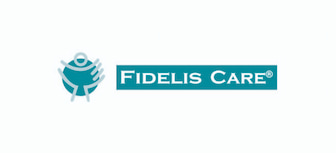Can I Book an Appointment Online with a Gynecologist in Manhattan Who Takes Medicare?
Medicare gynecologists in Manhattan often offer online appointment booking. Online booking through this directory saves you the hassle of waiting on hold or playing phone tag with the gynecology office staff. It’s especially helpful if you have a busy schedule, prefer browsing before committing or feel more comfortable managing appointments digitally.
This directory also offers options to reschedule or cancel online. Whether you’re a morning person or need something after normal business hours, you can find a time that works for you.
Choose to schedule an appointment with a gynecologist in Manhattan who takes Medicare from a variety of appointment slots, including:
- Early morning
- Midday
- Afternoon
- Evening
- Weekends
- Telehealth visits
What Gynecological Services Are Covered Under Medicare?
Medicare provides coverage for all essential gynecology services for your reproductive and overall feminine health needs. You’re eligible for Pap smears and pelvic exams to screen for cervical and vaginal cancer. These are typically covered once every 24 months, but if you’re considered high-risk, with a history of abnormal Pap results or a weakened immune system, you can get them once every 12 months.
Your exam may include:
- A Pap smear to check for abnormal cervical cells
- A pelvic exam to examine your uterus, ovaries and pelvic area
- A breast exam, sometimes included during the pelvic exam
Medicare also covers a screening mammogram once every 12 months. This test helps detect breast cancer early, even if you have no symptoms. If you need a diagnostic mammogram because of a lump or other concern, it’s covered, but may require a co-payment or deductible.
Other services include:
- HPV testing
- Bone density tests
- Breast cancer treatments
- Menopause-related care
- Urinary tract infection treatment
- Sexually transmitted infection screenings
- Gynecologic surgeries
Are There Highly Recommended Gynecologists in Manhattan Who Take Medicare?
Most top gynecologists accept original Medicare or your Medicare Advantage plan, which helps you avoid unexpected out-of-pocket costs. Some policies require you to use a doctor who’s in-network. The best gynecologists in Manhattan aren’t just licensed, but board certified in obstetrics and gynecology.
This ensures you’re receiving care from someone who meets high standards that include:
- Meeting national standards for safety and quality
- Staying updated with the latest women’s health research
- Having years of experience treating patients with diverse needs
To make sure you’re making the right choice, consider what other women have shared about a specific gynecology specialist. Reviews give you real insight into their care and reputation. Reviews that highlight professionalism, compassion and positive outcomes often reflect a consistent commitment to patient satisfaction. You may even come across a “highly recommended” tag on their profiles, which is a strong signal that other Medicare patients have had excellent experiences. Book an appointment with the best gynecologists in Manhattan with confidence.
Does Medicare Offer Access to Female Gynecologists?
Medicare does offer access to female gynecologists. If you already have a primary care physician (PCP) under Medicare, you can ask for recommendations for female gynecologists. Many PCPs have a network of trusted specialists, including female gynecologists, they trust. When you’re searching for a gynecology specialist through this directory, simply choose a woman doctor.
You may prefer to see a female gynecologist due to personal comfort, cultural norms or shared experience. Female gynecologists may also have a unique perspective and approach when it comes to women’s health concerns.
Booking an appointment with a female doctor may help you feel more at ease, especially when it comes sensitive, intimate examinations, such as:
- External genital exam
- Speculum exams
- Rectovaginal examinations
- Conversations about sex
- Questions pertaining to menopausal symptoms
Are There Out-of-Pocket Costs for Gynecological Visits Under Medicare?
Your out-of-pocket expenses vary, based on the type of service, your Medicare plan and whether your gynecologist is in-network if you have an HMO advantage plan. Medicare Part B covers preventive gynecological services at no cost. These services are usually covered every two years or annually if you’re at high risk for certain conditions. If your doctor accepts Medicare, you generally pay nothing for these preventive services.
If your visit includes diagnostic services, such as a diagnostic mammogram or evaluation of symptoms, you may incur costs as part of Medicare Part B. You typically must pay 20 percent of the Medicare-approved amount for the service, which typically is covered by an Advantage plan, minus a smaller co-payment.
Your out-of-pocket costs also depend on your doctor’s Medicare participation status, such as:
- Participating providers. You pay the standard deductible and co-insurance.
- Non-participating providers. They can charge up to 15 percent more than the Medicare-approved amount, also called a limiting charge.
- Opt-out providers. You’re responsible for the full cost of services, as Medicare doesn't cover any portion of the bill.
What Conditions Does a Manhattan Gynecologist Who Takes Medicare Treat?
Medicare is a government-based insurance typically reserved for seniors and people with certain disabilities. You may have special needs that are best addressed by a gynecology specialist, such as breakthrough bleeding after you stopped having periods.
On the other hand, your gynecologist may refer you to other specialists once they discover conditions that are beyond their scope of expertise. For example, you may need to see a urologist if you keep having recurrent urinary tract infections or an orthopedic surgeon if your arthritis worsens and your doctor believes you’ve reached the limits of what medications and physical therapy offer.
Maintain a relationship with your Manhattan gynecologist who takes Medicare, even as you move beyond your reproductive years.
You may be referred to make an appointment if you have other conditions as well, such as:
- Endometriosis
- Severe menopausal symptoms
- Hormonal imbalance
- Uterine fibroids
- Ovarian cysts
- Pelvic inflammatory disease
- Cervical or ovarian cancer


 My BestDoc
My BestDoc
 Future Appointments
Future Appointments
 Settings
Settings
 Sign out
Sign out










